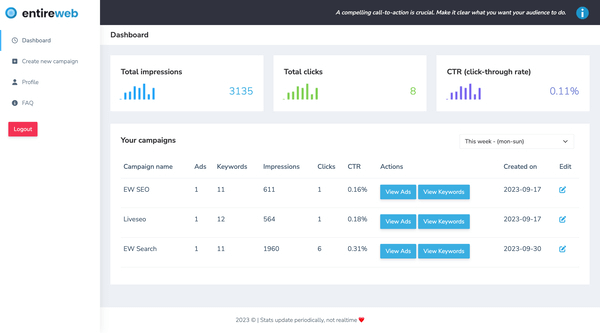1. Introduction
In today's digital age, search engines have become an indispensable tool in our everyday lives. They serve as the gateway to the vast amount of information available on the internet, helping us to find answers, connect with people, discover new content, and much more. The convenience and efficiency of search engines like Google and Bing have made them the go-to tools for billions of users worldwide. However, as the internet has evolved, so too have concerns regarding privacy and data security. Users are becoming increasingly aware of how their personal information is collected, stored, and used by these platforms. This growing awareness has led to a surge in demand for search engines that prioritize user privacy, offering a more secure alternative to the traditional giants. In this article, we'll explore the fundamental differences between private search engines, such as DuckDuckGo, Startpage, and Swisscows, and their non-private counterparts, like Google, Bing, and Baidu. We'll examine how they handle data privacy, tracking, advertising, search algorithms, and additional privacy features to help you make an informed decision about which type of search engine best meets your needs.
2. Data Privacy
Data privacy is one of the most critical issues in today's digital landscape. Non-private search engines like Google collect vast amounts of user data, which includes search queries, IP addresses, browsing history, and even detailed location information. This data is often aggregated to build comprehensive profiles on users, which can then be used for various purposes, most notably for targeted advertising. The more data these search engines collect, the more accurate and valuable these profiles become. This data collection can happen even if you are not logged into your account, and it may be shared with third-party advertisers, partners, and sometimes even government agencies.
In contrast, private search engines like DuckDuckGo take a fundamentally different approach. They operate on the principle that what you search for online is your business and no one else's. DuckDuckGo does not store any personal information, such as IP addresses or search history. They don't use cookies to track your behavior, and they anonymize your search queries to ensure that your identity remains protected. Other private search engines like Startpage even allow users to browse web pages through a proxy, further enhancing privacy by preventing websites from collecting data on their visitors. By choosing a private search engine, users can significantly reduce their digital footprint and gain more control over their personal information.
3. Tracking and Targeted Advertising
Tracking and targeted advertising are at the heart of the business models for many non-private search engines. These platforms use sophisticated tracking technologies to monitor user behavior not just on their search engine, but across the entire web. This includes tracking what websites you visit, what you click on, what you purchase, and even how long you stay on a page. By compiling this data, they can create highly detailed profiles that reflect your interests, preferences, and habits. These profiles are then used to deliver highly personalized search results and ads that are tailored specifically to you. For instance, if you've recently searched for vacation destinations, you might start seeing ads for hotels, flights, and travel packages. While this level of personalization can make search results and ads more relevant, it comes at a significant cost to user privacy.
Private search engines, however, do not engage in this type of tracking. They do not monitor your behavior across the web or use your data to serve targeted ads. Instead, they display ads based solely on the keywords you enter in the search box, without using any personal information to influence what you see. This approach ensures that your searches remain private and that your online activities are not being monitored or profiled. While this means you might see less personalized content, it also means that you can search the web without worrying about being tracked or targeted by advertisers.
4. Search Algorithms and Result Quality
One of the reasons Google has become so dominant in the search engine market is due to its incredibly sophisticated search algorithms. These algorithms are designed to deliver highly relevant and personalized search results by analyzing a wide array of factors, including your search history, location, and even the device you're using. This allows Google to provide search results that are not only accurate but also tailored to your individual needs and preferences. For example, if you frequently search for tech news, Google's algorithms will learn this and start prioritizing tech-related articles in your search results. This level of personalization can make using Google feel intuitive and efficient, as the search engine "learns" from your behavior over time.
On the other hand, private search engines like DuckDuckGo prioritize privacy over personalization. Their algorithms do not take into account your personal data, search history, or location when delivering results. This can sometimes mean that their search results are less tailored to your specific needs. However, many users see this as a benefit rather than a drawback. By not filtering results based on your past behavior, private search engines can help you avoid the so-called "filter bubble" effect, where you only see information that aligns with your existing views and preferences. This can lead to a more diverse and unbiased browsing experience, where you're exposed to a wider range of information and perspectives.
5. Additional Privacy Features
Private search engines often go above and beyond to ensure user privacy, offering a range of additional features that are not typically found in non-private search engines. For example, DuckDuckGo offers a unique feature called "Bangs," which allows users to search directly on specific websites without having to visit those sites first. By typing a simple command, such as "!w" for Wikipedia or "!a" for Amazon, followed by your search query, you can quickly find information on these sites while maintaining your privacy. This feature not only saves time but also minimizes the amount of data shared with third-party sites.
Another key privacy feature offered by private search engines is the use of encrypted connections (HTTPS) by default. This ensures that the communication between your browser and the search engine is secure and cannot be intercepted by third parties. Additionally, many private search engines block tracking scripts and cookies that would otherwise follow you across the web. Some even offer browser extensions or mobile apps that further enhance your privacy by blocking ads and trackers on other websites you visit. These features collectively make private search engines a powerful tool for users who are serious about protecting their online privacy.
6. Conclusion
In a world where online privacy is becoming an increasingly important issue, private search engines offer a compelling alternative to traditional, non-private search engines like Google. By prioritizing user privacy and refusing to track personal information, private search engines provide a level of anonymity and security that many users find reassuring. While they may not offer the same level of personalization or the advanced features found in non-private search engines, they excel in providing a neutral and unbiased search experience. Whether you're concerned about the amount of data being collected about you or simply want to take control of your online privacy, private search engines like DuckDuckGo, Startpage, and Swisscows offer a valuable solution. Ultimately, the choice between a private and non-private search engine depends on your personal priorities and how much you value your privacy in the digital age.
Published May 31, 2023


